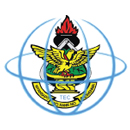Title of Research
Smart Solar Modular Container-Modular Plug & Play Solar Photovoltaic Containerized Solution with built-in intelligence and self-learning capabilities for an optimized implementation (SSMoC).
Principal Investigator / Project Coordinator
Prof. J. J. Kponyo, Telecom Engineering Department
Research Team Members and Departments
Prof. Francis Kemausuor, Team Member, The Brew-Hammond Energy Centre
Christian Adumatta Gyampomah, Team Member, Telecom Engineering Department
Brenden Asare, Team Member, The Brew-Hammond Energy Centre
Justice Owusu Agyemang, Team Member, Telecom Engineering Department
Other Collaborating Institutions or Departments
AZIMUT 360 SCCL, Spain
Research Amount/ Grant size
€22,000 (KNUST Share)
Funding Agency/Source of funding
INNOvative business solutions in WorldWIDE markets (INNOWWIDE)
Research Duration (Start and End Date)
6 months (1st October 2020 – 31st March 2021)
Research Story/ Article
The SSMoC project aims to access the business opportunity and initiate the development of the SSMoC, a modular, containerized and locally manufactured solar PV solution with built-in intelligence and self-learning capabilities that is easy to transport, install, setup and use. SSMoC has been identified as a potential solution to provide energy access and promote energy self-consumption in contexts with low electrification rate or with limited electricity quality of supply, such as rural communities in Ghana.
Azimut is collaborating with KNUST on this project to improve existing renewable energy
solutions in the market by:
- Integrating artificial intelligence (self-learning and demand response management capabilities to ensure the optimisation between the generation and the demand) and modularity with local manufactured solar PV containerised solutions including elements of circular economy for Sub-Saharan Africa.
- Implementing frugal innovation by providing electricity access at lower cost compared to the electricity from the main grid, electricity from diesel generators or even traditional solar containerized solutions that are not optimized and adjusted to the real needs.
Expected Outcomes: The expected outcomes are categorised into market research, product conceptualisation and product development plan.
Realised Outputs:
- Qualitative analysis of market and client opportunities
- Competition analysis
- Business opportunity survey
- Meeting with potential partners and investors
- Conceptual design of the concept
